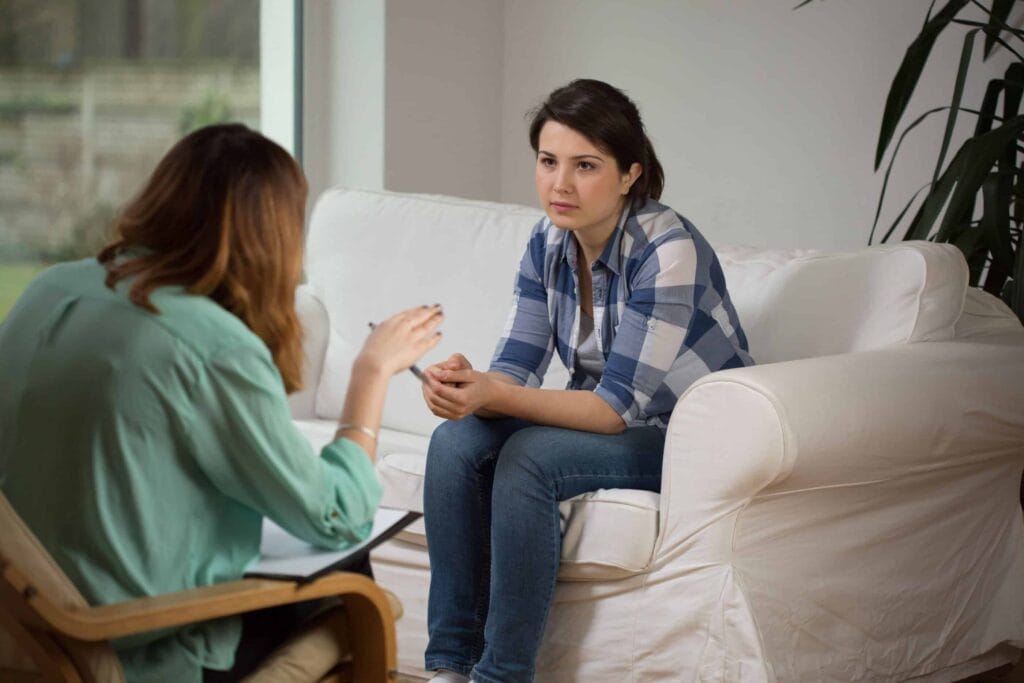Treatment-Resistant Depression Therapy
Comprehensive behavioral health treatment facilities for adults in a safe and comforting atmosphere in Southern California.


Treatment-Resistant Depression
When someone develops depression, it colors their entire world. For many, attending some initial sessions of therapy and taking medication can provide relief. For others, it’s just not that simple because they deal with what’s called treatment-resistant depression. When this happens, it can seem like all hope is lost. Montare Behavioral Health understands how to recognize when someone has treatment-resistant depression. From there, we complete a plan to help improve their symptoms and bring joy back into their lives.
What is Treatment-Resistant Depression?
When someone develops depression and seeks professional treatment, they often find that their symptoms begin to happen less often and are less intense in nature. However, this is not always what occurs. In fact, up to one-third of people with major depressive disorder have what’s called treatment-resistant depression (TRD). Even after engaging in long-term therapy, their depression still factors heavily into their daily lives. They either experience only minimal relief for their symptoms or none at all.
TRD may also be happening for someone who has tried prescription medications and found they do not give them the results they need. Clinicians can provide a diagnosis of treatment-resistant depression if someone has tried a minimum of two types of anti-depressant drugs for at least six weeks and found they did not help enough or at all. In other cases, for some people, the side effects of prescription medications for depression prove too debilitating to continue taking them. As a result, their depression continues.

How Can Treatment-Resistant Depression Be Treated?
Treatment for treatment-resistant depression consists of approaching the person’s care plan knowing they have this type of depression. Traditional therapy modalities already tried can be used again with the therapist able to reshape their approach. In fact, several kinds of therapies can help that may not have been used before. This includes modern approaches that specifically target helping people with TRD. Common types of therapy used include:
- Music therapy
- Mindfulness meditation
- Psychodrama
- Neurofeedback therapy
- Eye movement desensitization and reprocessing therapy (EMDR)
- Acupuncture
- Physical fitness
- Somatic therapy
Family therapy offers a person the chance to include their loved ones in a series of sessions. This allows the therapist to communicate to family members exactly what treatment-resistant depression is and why the person has had trouble making progress in the past. From there, loved ones can develop better communication skills and a plan for how to support the individual.
If someone has limited experience trying prescription medications to help their depression, the opportunity to try different and potentially more effective ones will happen.
Begin Treatment for Treatment-Resistant Depression
Have you tried several ways to try to overcome your depression but haven’t found the help that truly makes the difference? If you find that traditional therapies and prescription drugs don’t give you the results you need, you may have treatment-resistant depression. Montare Behavioral Health has a program that helps treat this challenging mental health disorder and improve your symptoms. Our menu of therapies and access to clinicians trained to treat all forms of depression help you rise above the limitations depression puts on your life.
If you want to talk to a staff member who can explain how we can help you improve your symptoms of treatment-resistant depression, contact us now. We can provide the highly effective, compassionate care you’ve been looking for.
What’s it Like Living With Treatment-Resistant Depression?
Living with TRD can cause a number of difficulties for a person. First, they find themselves unable to regulate their emotions. This can make performing even the simplest of tasks hard to complete, such as being part of family functions or attending to basic hygiene. This type of depression often complicates a person’s ability to do well on the job or in school and drains them of the desire to participate in hobbies or fun activities.
Someone with TRD may find that people they know do not understand what is wrong. Family members, friends, co-workers, and others may mistakenly believe that the person simply isn’t trying hard enough to feel better. They may see evidence that the person has gone to or continues to go to therapy and wonder why they aren’t feeling better. As well, many people think that everyone responds positively to prescription medications for depression. They don’t understand how someone could try two or more drugs and not get relief. When people around someone with this type of depression doubt their disease or blame them for not trying hard enough, it complicates the situation for the individual.
Someone who has treatment-resistant depression and does not know it often blames themselves for not getting better. Once they receive a diagnosis and can begin treatment for this challenging mental health disorder, they begin to understand they are not at fault for their mental illness.

Montare Behavioral Health
Tour Our Facilities













